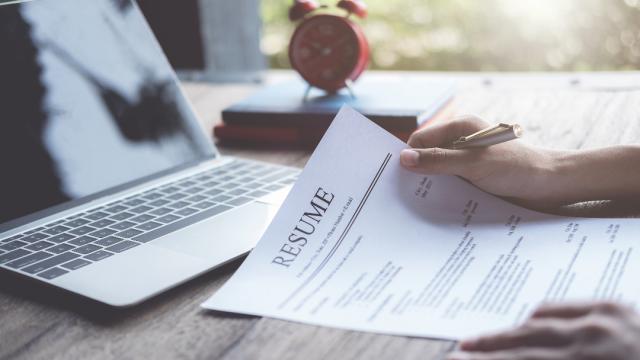Writing a standout resume and cover letter that’ll get an employer to call or email you straight away isn’t a piece of cake. They know it, we all know it, but the pressure is still on. If you’re struggling to make yours punchy and removed from the cliched ones out there, here are some tips to get you through the process.
For me, the hardest thing about applying for a new job has to be writing a resume and cover letter to fit the role. It’s two or three pages of words you hope and pray the employer will understand and appreciate.
But sometimes, our experiences and strengths aren’t reflected on a piece of paper like we’d hoped, and the next thing you receive is a gut-wrenching email in your inbox with the most common opener:
“Thank you for taking the time to apply for the role. Unfortunately, we ended up moving forward with another candidate.”
It’s unfortunate that the sentence above might be a more frequent occurrence for some given the job market in Australia has tanked ever since the pandemic hit the country. So, we spoke with Kathleen McCudden, Group Human Resources Director at SEEK, to give us her do’s and don’ts of writing a strong resume and cover letter to help you stand out from the crowd.
Resume
“It’s important to highlight key responsibilities and unique selling points in your resume to stand out from the crowd (some recruiters and potential employers can receive hundreds of resumes a day!),” explained McCudden.
If you’re unsure about what you can include and what you can go without, McCudden suggested following a list of must-haves in your CV/resume:
-
Personal details: Full name and contact information, including your phone number and email address. In relation to your personal details, only include information which is relevant to progress your application for the role. For example, don’t include passport details or any banking details. No legitimate employment opportunity should be asking for this information at the application stage.
-
Career objective or summary: Describe your experience and your objectives for your career.
-
Education: For each experience, include the qualification you received, where you studied, when you started and finished, any specialty areas of study, plus awards or other achievements.
-
Work experience: Under each job, use bullet points to give a brief overview of your responsibilities and achievements, weaving in the skills you used. You can also mention relevant internships and volunteer work in this section.
-
Skills, strengths or interests: Highlight any relevant professional memberships, too.
-
References: Provide the contact details for a former employer, manager, or academic advisor if they have agreed to be your referee, and briefly explain their relationship to you. Alternatively, you may wish to write “references available on request”.
McCudden also emphasised applicants should stray away from popular buzzwords like, ‘loyal’, ‘energetic’, ‘punctual’ ‘motivated’ and ‘enthusiastic’.
“While some candidates may think these words sound great on a resume, often they don’t resonate unless they are backed with concrete examples,” she said.
“It’s always more effective to demonstrate an attribute or quality, as well as the outcomes associated with them from previous roles.”
Cover Letter
Don’t listen to anyone who says cover letters aren’t important. Because they really, really are — at least if you want to get shortlisted for the role.
“They introduce you to the employer and allow you to demonstrate your personality, as well as highlighting the experience outlined in your resume which makes you a great match for the position,” explained McCudden. “Your cover letter might not be the first thing a recruiter or an employer looks at, but if your application doesn’t have one, you could be putting yourself at a disadvantage.”
Here are some tips (and an example) to help you write one up:
-
Keep it brief. The purpose of a cover letter is to give people a taster of who you are, so keep it punchy and professional. Usually 4-5 paragraphs will be enough.
-
Get to the point. We’ve all been tempted to give potential employers a little more background, a little more context, a little more of us! However, cover letters aren’t the time for this. Be up front and explain why you’re the person for the job right away.
-
Don’t just regurgitate your resume. A cover letter should expand upon the relevant points, rather than repeat them. Use language which is professional and personable, as you introduce yourself and include comments such as how you found out about the role, why you’re interested in it and your understanding of the company’s purpose and culture.
The three things I’ve personally learned over the years is:
- Don’t use the same resume format that got you your first job – things have changed, you have more experience. Start over, even if it’s time consuming.
- Back everything you’re saying with solid examples.
- Don’t hesitate to ask multiple people to look over your CV and cover letter. It can be brutal getting feedback over and over again but it’s what’ll get you over the line.
If you’re applying for a new job and are reading this, we wish you the best of luck.

Leave a Reply
You must be logged in to post a comment.